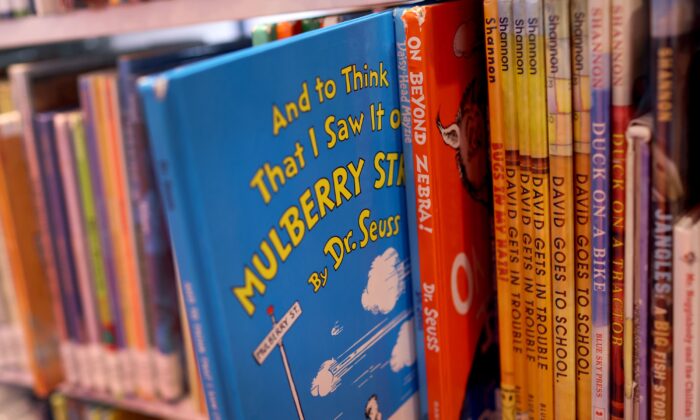By AND
Filmmakers Clarence Felder and Chris Weatherhead say that, as cancel culture broadens its scope, it’s not only having a chilling effect on people working in creative fields, but it seeks to imprison the mind more generally—to the detriment of society and civilization.
“I think the idea is to wipe out our history, wipe out our traditions, our values, everything—with the idea of just having there whatever they are doing, which is terrifying,” Weatherhead said of what she described as cancel culture run amok.
“Whether it’s theater, or whether it’s film, or whether it’s television, or podcast—it’s a way of communicating what matters,” Weatherhead told The Epoch Times’ “Crossroads” program.
The filmmaking duo spoke of clashing views around creativity—with one camp advocating for greater freedom to introduce ideas so they can then be openly challenged, debated, and—potentially—relegated to the dustbin of history, and the second seeking to ever more tightly control the boundaries of acceptable dialogue, silencing dissenting opinions, and restricting artistic and creative freedom.
Felder said a core function of stories is to inform people of the consequences of decisions and actions—without having to experience them directly.
“The power of story is significant—not just to Western civilization, but to all civilizations,” he said, noting that stories are a way to convey key messages and values to subsequent generations, who eventually “start acting them out, and then make decisions” that are meant to ensure they survive and thrive.
“The whole idea is to help change somebody’s life, help them make a better decision, which is what I was doing in the prisons,” Weatherhead said, noting she had spent around eight years in the California prison system helping inmates rehabilitate.
“And some of those people that were in prison were more free, because they had figured it out,” she said. “They had figured out life. And they were going to make good choices when they got out.”
“And I drive back down to [Los Angeles] and I’d be in the company of people who were imprisoned by money, drugs, sex, power, whatever, and I felt like God had given me the ability to just see—it’s very sad that people could spend their whole lives in prison—and they’re not behind bars,” Weatherhead added.
She said cancel culture was mounting an attack on the freedom of creatives to tell stories their way—and so undermining their ability to use narrative as a tool to educate, inspire, and guide.
“It is so devastating,” she said. “I say no censorship.”
“There are things that I would love to utterly destroy, but I do not believe in censorship of any kind. Free societies do not tolerate censorship, flat out,” she said.
The interview with Felder and Weatherhead—who have undertaken numerous joint projects over the years—comes as cancel culture has broadened its targets to include cartoon characters like Speedy Gonzales and children’s authors like Dr. Seuss.





